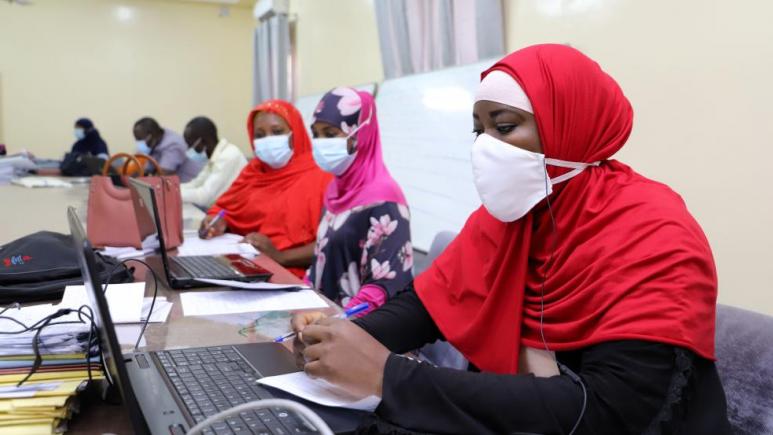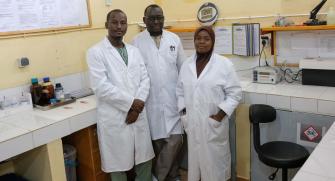Alerte Niger: early warning of epidemic risks to act more quickly
The key to responding to an outbreak is speed, and it starts with notification of suspected cases. How do you let know that a little girl may have measles, a highly contagious disease, in a village located more than 3 hours away from the nearest health center, and then verify if this is the case and launch a response to prevent the multiplication of cases? The “Alerte Niger” program developed by Epicentre with the support of the MSF Foundation improves the reporting of information and the completeness of investigations. It is based on the implementation of an electronic platform in place of the paper forms previously used.
"First deployed for the notification of COVID-19 cases at the request of the Niger Ministry of Public Health, this platform is now being studied in the Maradi region for the reporting of three notifiable diseases: measles, meningitis and cholera. Explains Robert Nsaibirni, Data Management, IT and Compliance Coordinator at Epicentre. It allows for real-time transmission of information throughout the health pyramid.”
Application, tablets, phone at the heart of the answer
In the health areas level, community relays have been equipped with a phone with permanent credit, which allows them to notify the nearest referral health center of a suspected case of measles, meningitis or cholera at any time. Upon receipt of the SMS, the staff at these centers enter the information into the “Alerte Niger” application from a tablet provided to them. The system is designed to be easy to use, lightweight and low-bandwidth, and can be used offline, with a one-time internet connection required only to transmit the information.
"As soon as a suspicious case of a notifiable disease is notified, the application tells the health center staff what actions to take. The first step is to send someone to investigate and possibly take a sample from the sick person," explains Rahana Harouna Abarchi, epidemiologist at Epicentre.
Where it used to take up to two weeks, a single day is enough to set up this first level of response. Then, if the investigation confirms the risk, the higher level of the health pyramid is alerted thanks to computers equipped with “Alerte Niger” software with a reminder of the tasks to be accomplished, and so on for the following health levels.
"But the information does not only go up, the different links of the pyramid are kept informed. The same applies to the samples taken, which are followed up until the laboratory and the results are obtained," says Robert Nsaibirni.
The health districts and the regional delegation of public health in Maradi can thus follow the evolution of alerts in real time and obtain surveillance data directly implemented by the “Alert Niger” application.
The pilot phase implemented in the Maradi district shows that the completeness and quality of the data are significantly improved: only 20% of the data are missing when using the platform compared to over 60% before its introduction.

A user-centered, simple and low-cost approach
The application was designed with the various users, integrating their comments at all levels of the action chain, which facilitates its appropriation. It is fully integrated into the existing monitoring system and requires few additional human resources.
"In addition to the usefulness of the platform and its ease of use, many users indicate that this digitalization has allowed them to save time that they can now devote to other public health activities," adds Rahana Harouna Abarchi.
The application that was originally developed by Medic is also easily adaptable and can now be transposed to other diseases, locations or languages, thanks to the technical support of Epicentre.
With the current paper-based system, it usually takes several weeks before the district, region, and country are notified of a new outbreak. This allows time for the epidemic to spread, cause many deaths, and makes it more difficult to control. Today, the “Alerte Niger” pilot phase has proven its effectiveness. It is therefore ready to be extended to other regions or countries and to other diseases.








